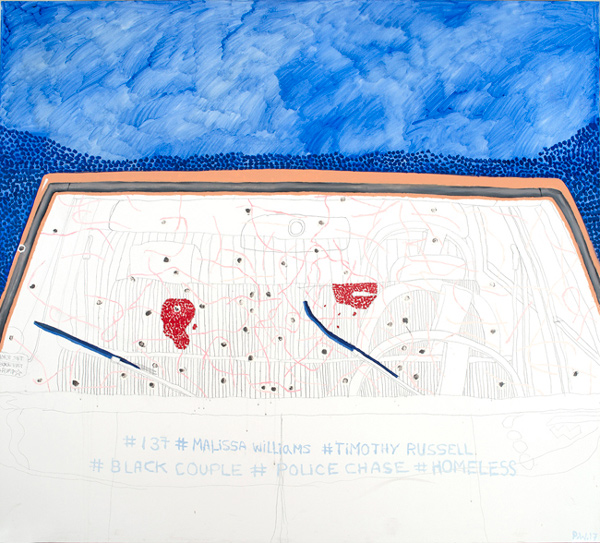The opening movement of “Soul Recordings” is a polka-dot revelry, a bedazzled wake-up call, a cymbal-clap altarpiece, a plastic-bead trumpet blast, and a monster of a skull-ringed, glitter-bombed orchestral chord breaking in fuchsia major. This is Ebony G. Patterson’s heartbreaking and eminently Instagrammable mixed media installation work, and the poignant grandeur of its regal and folkloric memento mori is alert and ineffable. From there, the group exhibition lives up to its musically-derived name, unfolding like a compilation concept album, with alternating levels of volume, tempo, and style. Its rhythmic pace presents an array of voices echoing a panoply of influential styles and cultural histories that include both art and music, as well as fashion, politics, commerce, addiction, technology, desire, and power.
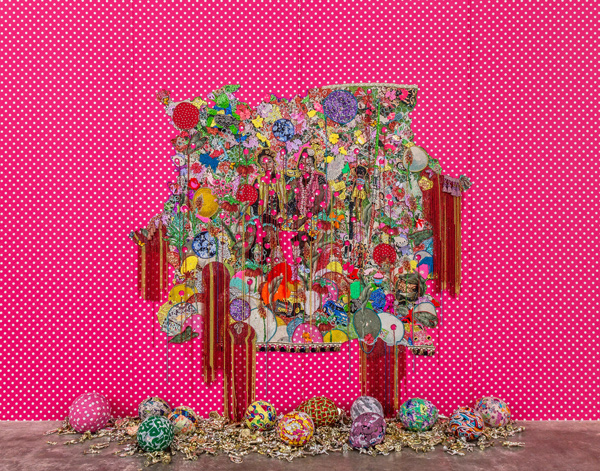
Ebony G. Patterson, …They Were Beautiful Like The Moon… They Were Just Babies… They Were Just Girls… (…When They Grow Up), 2016-2018. Courtesy of the artist and Luis De Jesus.
The video by Lex Brown (whose YouTube channel is worth your whole morning) is a triumphant send-up of absurdist, dysfunctional film theory and DIY cultural appropriation, or more accurately and as the exhibition essay by Jill Moniz keenly observes, re-appropriation.
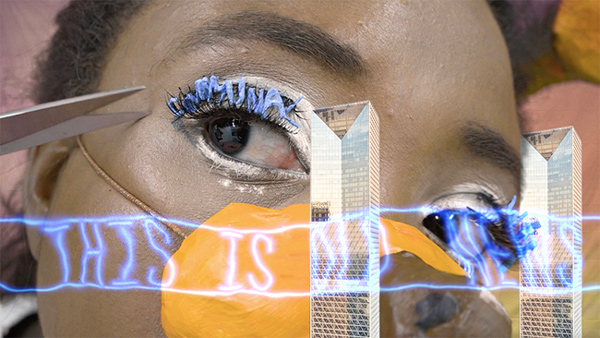
Lex Brown, Lip Gloss Alurt (2017). Courtesy of the artist and Luis De Jesus.
Brown’s video is installed in proximity to exuberant, confrontationally mannerist paintings by Caitlin Cherry that joyfully mine and malign selfie culture, artificial racially engaged beauty standards, and eBay intelligentsia, using exceptional colorist painting skills. Also in this continuum are the flashy, hyper-stylized paintings of Peter Williams, revelatory with their radiant saturated colors, cartoon format, and text elements calling out the names of lives lost to injustice and violence. Works like these sustain a paradox of compassion and subversion, in which difficult ideas are contained within high-energy aesthetics.
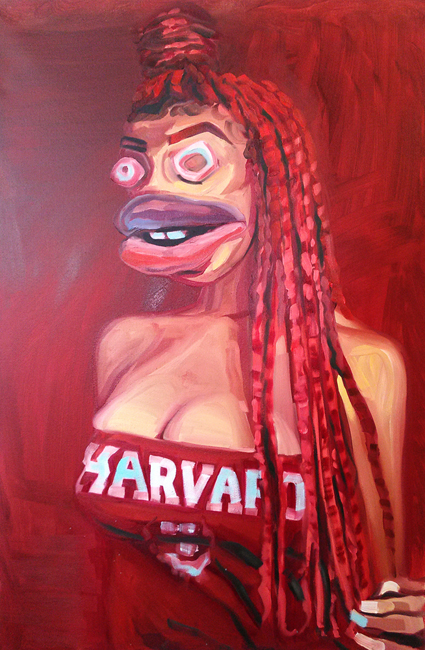
Caitlin Cherry, Harvard (2017). Courtesy of the artist and Luis De Jesus.
Other artists in the show offer more subtle, nuanced objects and images, while remaining just as strongly tethered to a set of meanings and contexts no less fraught with hard truths. For example: the sultry atmospherics of Paul Anthony Smith; the elegant risographs of Edra Soto like an all-night liquor store Morandi; and the tensile strength of nested sculptural lines by Lisa C. Soto, tracing the potent invisible things that connect us and mow us down and generate the fractured but repairable life-stories she seeks to tell, for herself and for others.
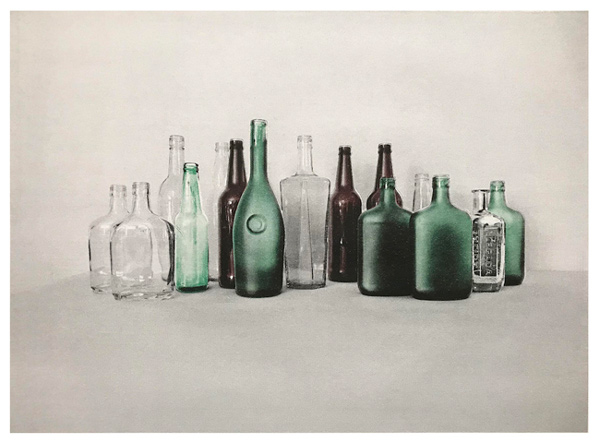
Edra Soto, Open 24 Hours, 1/7/17, Hennessey, Rémy Martin, Avion, Budweiser, Miller, New Amsterdam (2017). Courtesy of the artist and Luis De Jesus.
Deborah Roberts’ collages express the composite nature of racial identity in the modern world, and the degree to which gender itself is also a construct. The eclectic range of mediums and styles is grounded and centered around a thematic core of strategies for modern living—one which while directly addressing experiences of race and gender, offers wisdom of benefit to all humans.
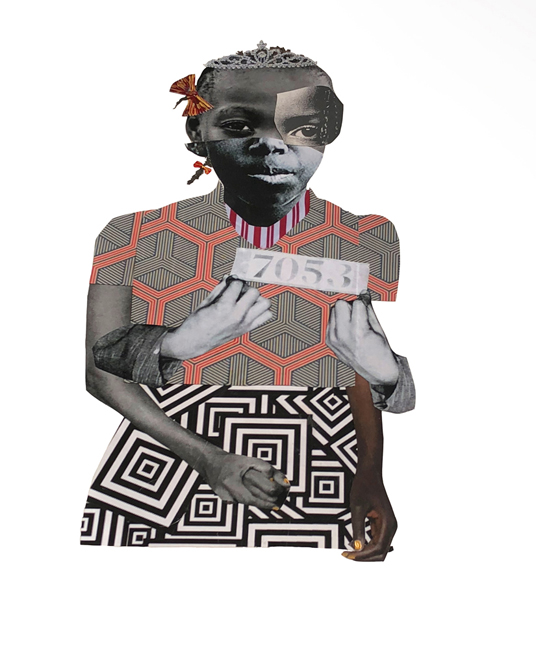
Deborah Roberts, Breaking Ranks (2018). Courtesy of the artist and Luis De Jesus.
“Soul Recordings,” February 17 – March 24, 2018 at Luis De Jesus Los Angeles, 2685 La Cienega Blvd., Los Angeles, CA 90034. luisdejesus.com

